Bronx Pride march stresses acceptance and visibility
The streets were hot in the South Bronx on Saturday, June 22, but it wasn’t just because of the sun. Led by Bronx Borough President Vanessa L. Gibson and her LGBTQIA+ Taskforce, along with Bronx District Attorney Darcel Clark, a couple hundred people showed up and showed out for this year’s Bronx Pride march. Kicking... Read More
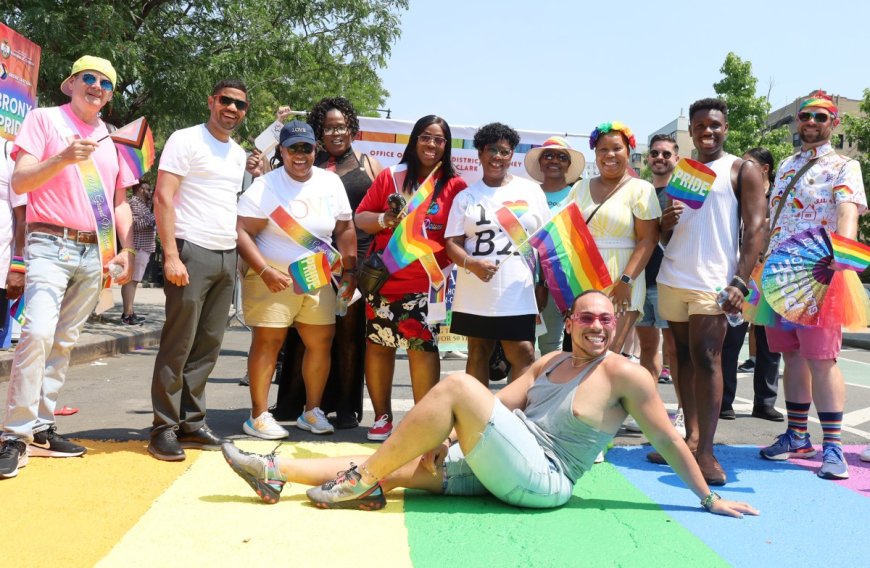
The streets were hot in the South Bronx on Saturday, June 22, but it wasn’t just because of the sun. Led by Bronx Borough President Vanessa L. Gibson and her LGBTQIA+ Taskforce, along with Bronx District Attorney Darcel Clark, a couple hundred people showed up and showed out for this year’s Bronx Pride march.
Kicking off around noon, groups including Destination Tomorrow, The Ali Forney Center and NYC Dyke March, fabulously and proudly marched to a playlist of Beyonce songs while snapping their rainbow-colored hand fans to the beat. After roughly one mile of walking, the procession culminated at Westchester and Bergen avenues, where a stage was set, including dozens of vendors, non-stop party music and a complete run-of-show until 6 p.m.
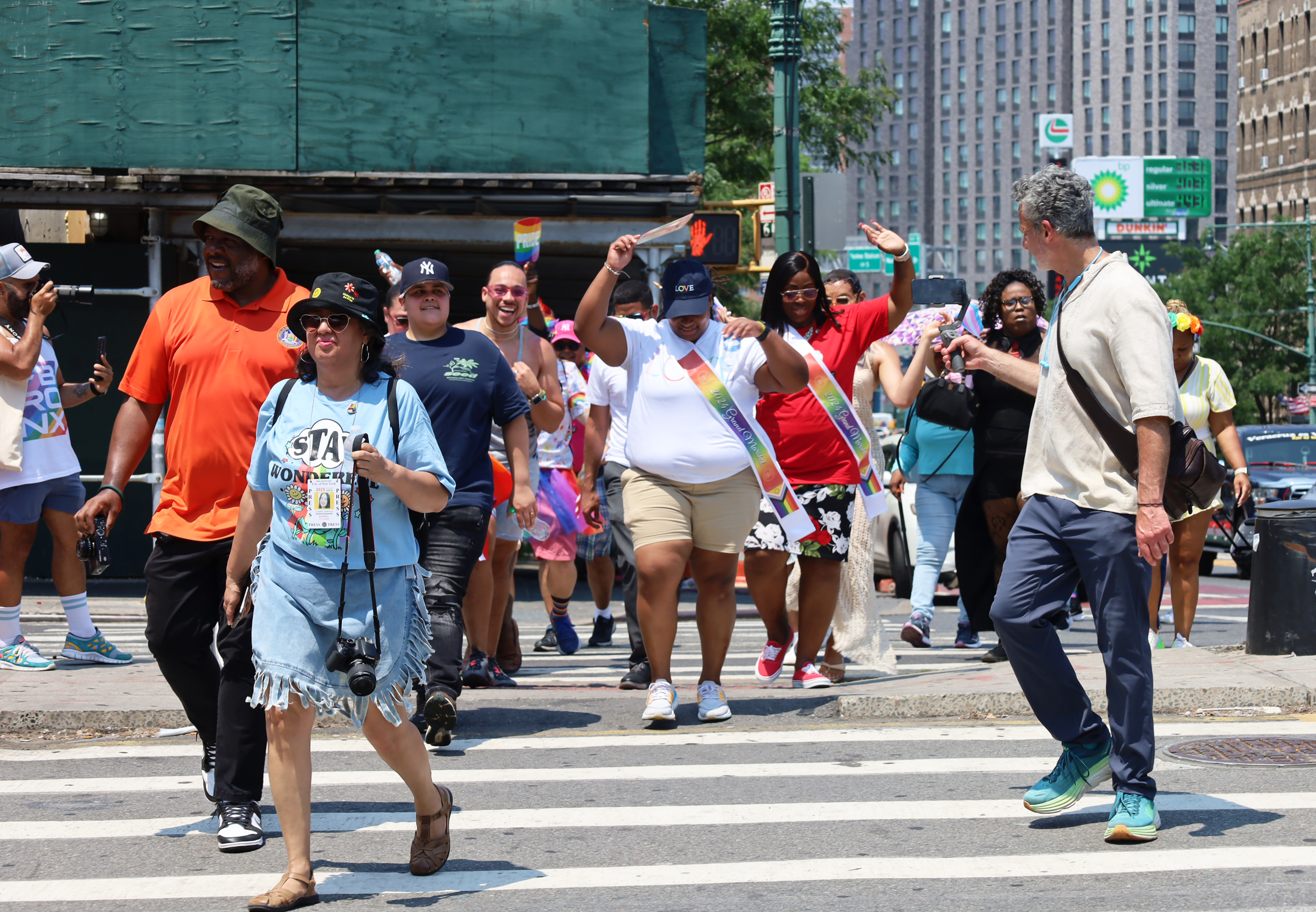
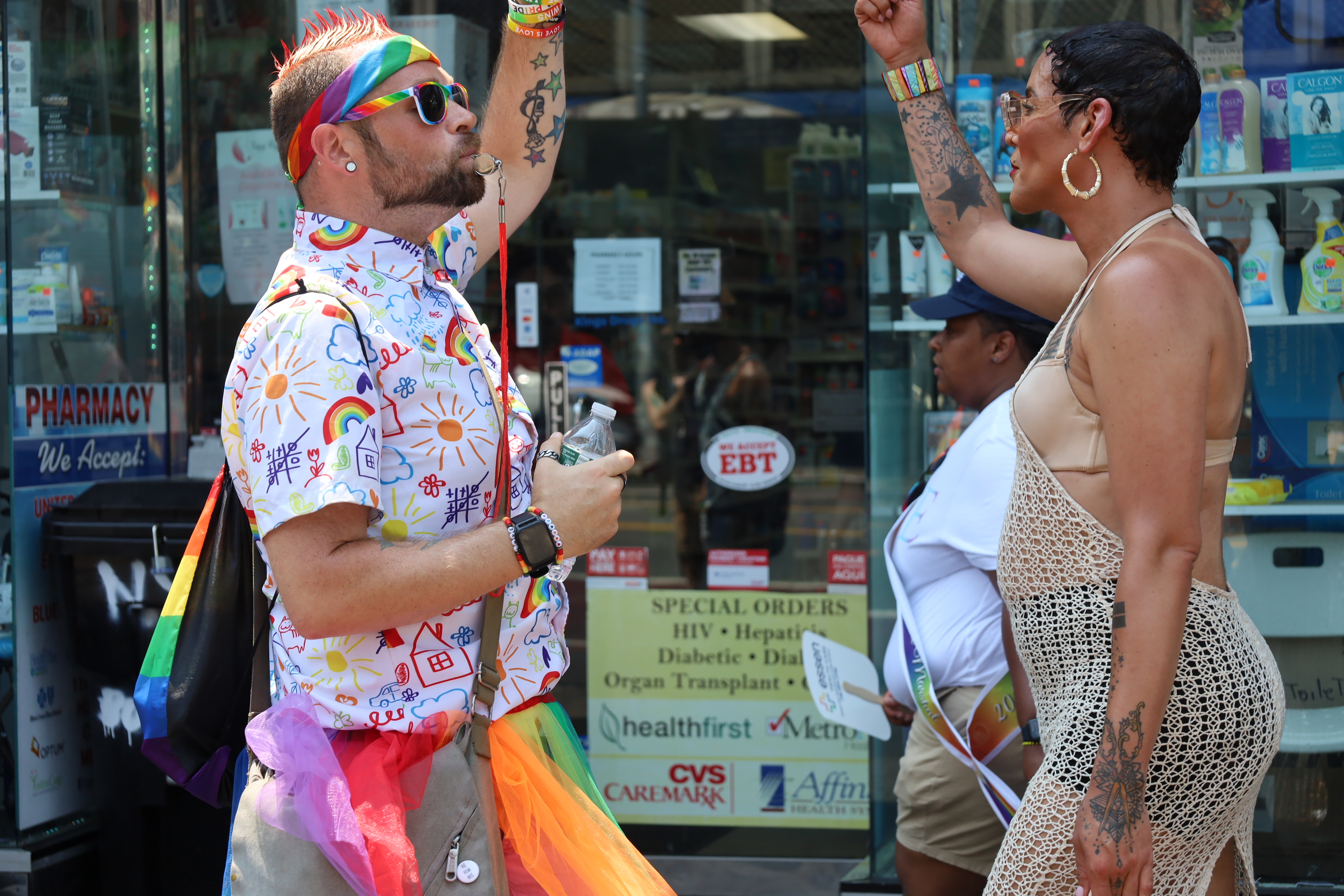
“We’re walking, we’re walking, we’re vogueing, we’re vogueing,” said Kenny Agosto, who was directing the march with his megaphone and works with the Gibson’s LGBTQ Taskforce.
The first Bronx Pride march started in the late 1980s under then-Borough President Fernando Ferrer, according to Lewis Goldstein, who was a social activist for decades and fundamental in its beginnings.
“I’m from Jamaica and I came here to live my full colors,” said T.J. Francis who was walking with Destination Tomorrow at the Bronx Pride march as a new Bronxite.
Francis arrived to the U.S. three years ago in search of sanctuary and community from Jamaica, where LGBTQ+ people are criminalized and punished with up to 10 years of imprisonment with hard labor.
One night, Francis brought their boyfriend to their home where they lived alone. Francis was spotted by random men in the street, who then told their cousin, who then rallied a gang, who then began to stone their house and make death threats. Francis became paranoid, moving apartments all over the island, but always bumping into someone they knew.
“It was a traumatic time, my dad stopped talking to me and I was closest to him; my mom – even up to this date she’s still living in denial,” Francis told the Bronx Times. “I had to be working 24/7 just to save up some money to get here and I’m finally here.”
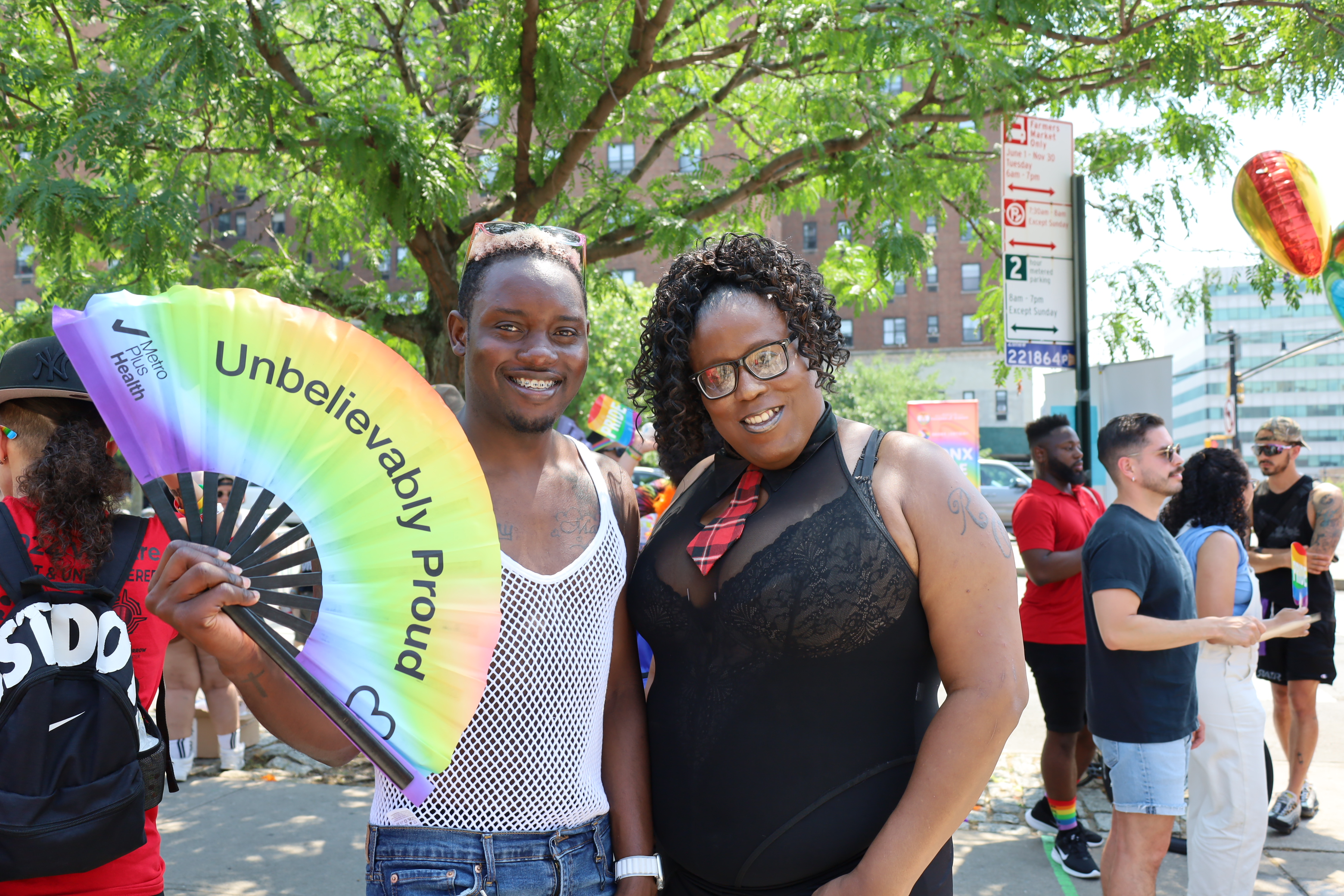

Victoria Bell, who has been a community activist for five years and is part of Gibson’s LGBTQ taskforce, also lost her family’s support and her job when she came out as trans. She had difficulty finding regular employment due to her gender identity and turned to sex work to make ends meet.
“I knew my work. I know how to do my work. It’s just my gender — it should be no thing,” Bell said emphatically. “As long as you can figure it out and you bringing all the numbers that they need for your job, they should never disown you.”
At the beginning of the march, while Gibson delivered her usual upbeat speech about love and community, Clark touched on something more sullen.
“So many hate crimes happening, going against this community,” said the borough’s district attorney. “And when you hate one of us, you hate all of us and I’m not having it.”
In 2022, anti-Gay hate crimes superseded anti-Asian hate crimes which skyrocketed after the COVID-19 pandemic, according to data from the Federal Bureau of Investigation. That same year set the record for having the most anti-LGBT legislation and in 2021, the Human Rights Campaign recognized the deaths of 59 victims of transphobia.

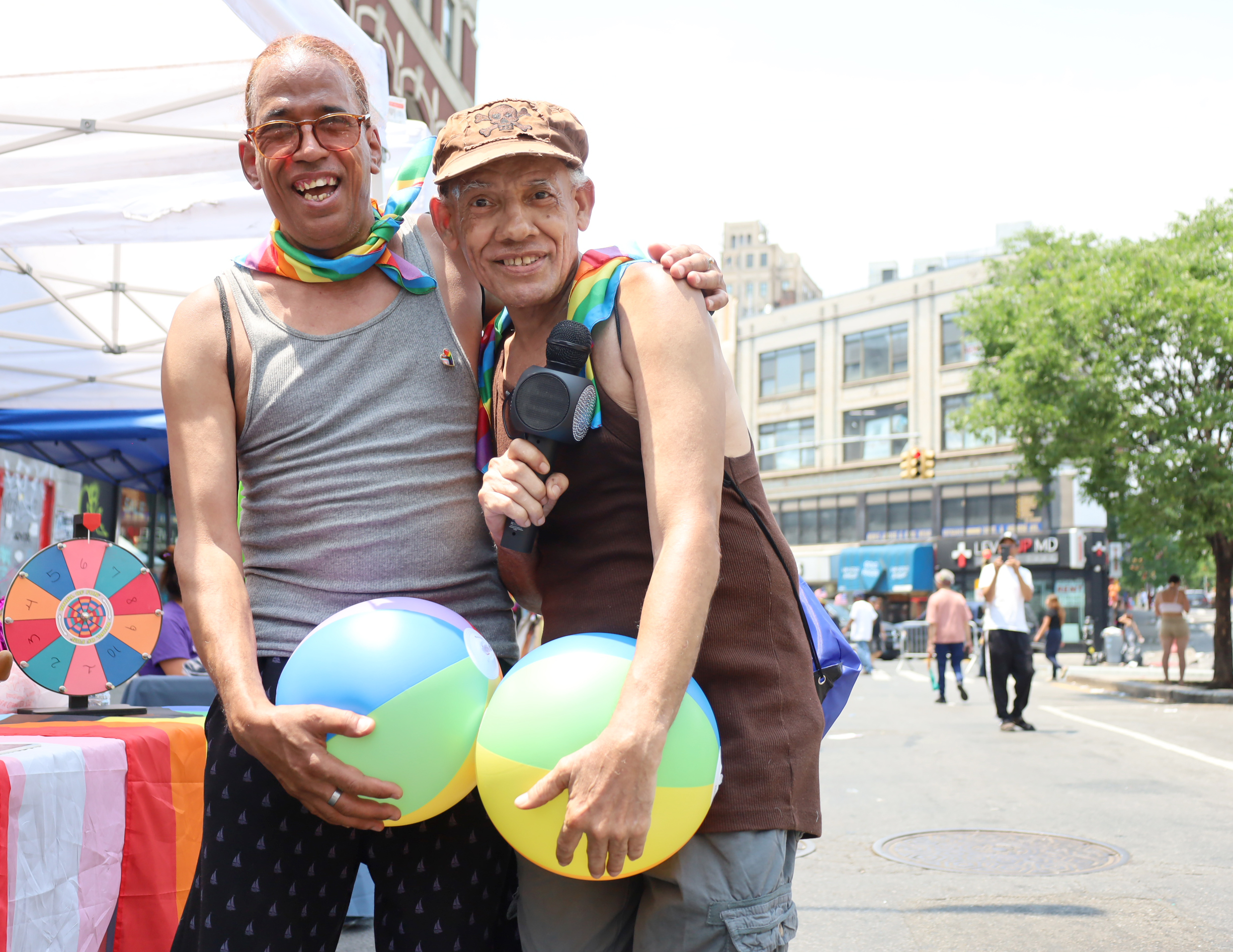
The roots of Pride date back to 1969 when at the Stonewall Inn in Manhattan’s Greenwich Village, when police entered the bar and “arrested customers for not wearing at least three articles of ‘gender-appropriate’ clothing,” according to the Anti-Defamation League. This event sparked the very first gay march in NYC, Los Angeles and Chicago and over time, spread to other states and even other countries.
“We’re all about who we are authentically,” Gibson told the sweaty crowd as they lined up at the north-west corner of 161st Street and Grand Concourse where the crosswalk was painted in the Pride flag colors.

Reach ET Rodriguez at etrodriguez317@gmail.com. For more coverage, follow us on Twitter, Facebook and Instagram @bronxtimes

 Mark
Mark 





